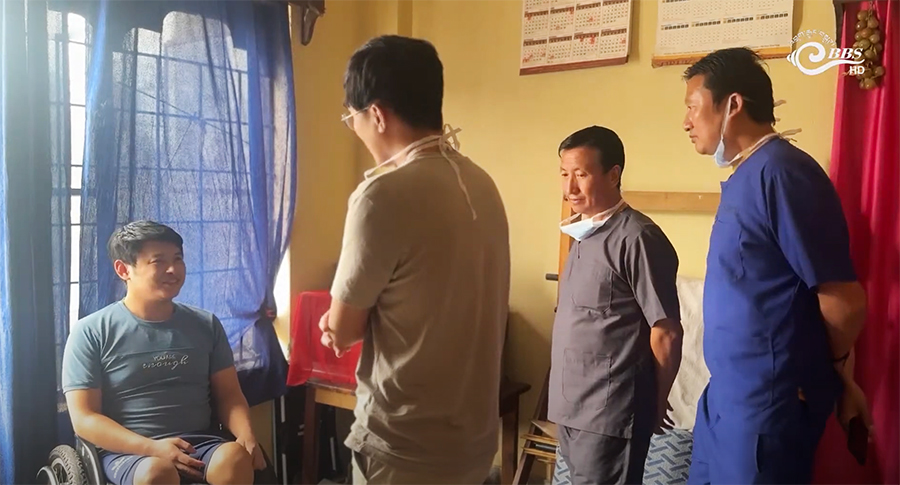 In Phuentshogling, the opening of palliative care at Phuentshogling Hospital in August last year is transforming lives with compassion and comfort. The dedicated palliative care team not only provides relief to patients but is also pioneering reintegration programs to help them regain a sense of normalcy. Since its inception, the unit has already registered around 50 patients, offering holistic support and improving the quality of life for those facing serious illnesses.
In Phuentshogling, the opening of palliative care at Phuentshogling Hospital in August last year is transforming lives with compassion and comfort. The dedicated palliative care team not only provides relief to patients but is also pioneering reintegration programs to help them regain a sense of normalcy. Since its inception, the unit has already registered around 50 patients, offering holistic support and improving the quality of life for those facing serious illnesses.
 Twenty-three-year-old Sonam Dorji lives within the confines of this house, a place that has become his refuge.
Twenty-three-year-old Sonam Dorji lives within the confines of this house, a place that has become his refuge.
Five years ago, while working for the Construction Development Corporation, a tragic accident changed everything. As he was unloading materials from a truck, a heavy iron rod fell on him, severely injuring his spinal cord. The injury left him paralyzed, and with it, the life he once knew slipped away.
Today, Sonam faces each day bound to a wheelchair, fighting not only physical limitations but also the emotional toll of his condition and burdened by the growing financial pressures.
His life began to change with the care and support of the palliative care team. For years, Sonam had been confined to his bed. Their focus on both his physical and mental well-being has given him a new sense of hope.
“Doctors, coming here every Thursday has helped me a lot. Earlier, going to the hospital was challenging. My sister could not carry me. We are from humble backgrounds, and with just my sister working, the financial pressure is immense. She has her children, and I have to use diapers all the time.”
His sister, Tendrel Choezom has been his firm pillar of support, unwavering through every hardship. But her journey has not been easy either.
“The accident has changed our lives forever. The days are getting more challenging. The need to get him a diaper is draining me out. The financial pressure is huge because I only have a small job. And there is no one to help. The Hospital has helped us.”
The team is now looking at opportunities to reintegrate Sonam into society where Sonam has also shown interest in tailoring.
Similarly, 63-year-old Bir Bahadur also became paralyzed after suffering a stroke caused by uncontrolled high blood pressure. The palliative care team has stepped in to provide medical support, home-based care and guidance to the family.
Suk Maya Rai, his daughter-in-law said “My father-in-law has become like a child because we have to do everything for him. Since he cannot move, we have to feed him, put him to bed, bathe him, and take care of all his needs. Doctors visit him every week, bringing medicines and conducting checkups at home. This has been a great help, as taking him to the hospital is challenging.”
According to health officials, their aim is to provide comprehensive, compassionate care that addresses both physical and emotional needs. However, human resources and lack of relevant training remains a challenge.
Dr Lhap Tshering, Phuentshogling Hospital said “Because of this HR shortage, we can only visit patients on Thursday. Also, it has not been long since palliative care started in Bhutan, so I feel relevant training are important because we have to deal with all sorts of diseases and patients.”
The palliative care unit at Phuentshogling Hospital is bringing hope and dignity to patients, despite challenges in resources and training.
Kinley Dem, Phuentshogling








